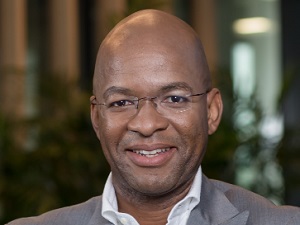Why South Africa's IOT ecosystem is vital to small business development
Why South Africa's IOT ecosystem is vital to small business development

While South Africa is not investing nearly enough R&D into its IOT ecosystem, there is progress and the market should expect more solutions from a fresh wave of new entrepreneurs entering the space.
This is according to Phathizwe Malinga, MD of South Africa-based DFA subsidiary and licensed Sigfox operator SqwidNet, focused on IOT solution development and rollout.
The company recently hosted a pitch day for its IOT Entrepreneurship Program (IoT)E , an opportunity for budding businesses to pitch their ideas to five potential investors.
(IoT)E includes a group of 60 prospective entrepreneurs and ICT business owners representing 40 small but established businesses, as well as 20 start-up operations.
"I think this is a good ratio, when we started, I thought it feels like you have more people on the ground who are able to help these entrepreneurs, so there's a good swell of them, you know, when you are at the 30 percent mark.... that they also are not being dictated to. If I was to push it, I wouldn't go beyond 40/60, I like it being more small businesses, because its almost a similar mind-set, it's just one or two of them are one or two years ahead."
On pitch day seven finalist groups, narrowed down from the group of sixty over a period of a year, engaged the investors.
The main criteria was business' ability to develop androll out IOT-based solutions designed to address specific South African problems.
Solutions presented covered smart security, smart gas monitoring, a smart hand sanitiser, and a smart medical kit.
The finalists included Inobeshon, Jonga Systems, tekSolve, devXpress, The Awareness Company, Mkazi Concepts, and Line of Sight Technology (L.O.S.T).
Practicality of IOT
Malinga says there are many buzzwords in ICT today, including blockchain, AI and 5G ... "and we know, in theory, what these terms can do for us, but we don't see it on the ground until the big companies have started doing it."
This is where IOT differs in terms of practical application says Malinga and it is possible to purchase a kit, know nothing about IOT and "in two hours' time you will have built your first prototype."
It is then possible to acquire commercial grade IOT at a cost that is not prohibitive.
"The minimum requirement is to be human and be alive," Malinga quips. He suggests that because of the advent of IOT technology, start-up businesses are able to not only scale, but also sustain their models and compete quickly in markets.
Malinga references boombadotmobi, an online waste management business touted as "the Uber of waste removal', as an example.
He said the start-up business had little capital but a clear business plan and when they approached SqwidNet, they put up under R1000 as an investment.
